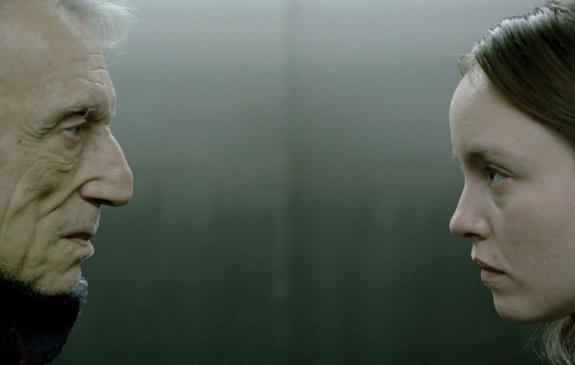



Italian cinema is often scolded for not being up to its mighty past of grandeur. The contemporary Italian film-makers known world wide are few and are definitely of age. In this scenario, the twin film-making brothers from Turin, Gianluca and Massimiliano De Serio, find a way to make an outstanding movie at the age of 32.
Seven acts of mercy, presented at the 55th BFI, is the story of Luminitia’s encounter with Antonio. She is a young illegal immigrant living on the edge of a shanty town, and she has hatched a plan to flee from it. To do so she bumps into a sick and mysterious old man. The clash between the two is unavoidable and harsh, leading to unforeseeable consequences.
The film is true poetry. The dialogue goes beyonds the few words expressed. Body language absorbs the scene. The skilfully accomplished Roberto Hertlizka embodies the approach of death, in contrast with the cry for life that devours the young girl interpreted by Olimpia Melinte.
The film is guilt-edged, but it is even more remarkable to converse with the creators of it all: Gianluca and Massimiliano, combine great wit, sophisticated culture, not to mention their charming sense of humour! While playfully bickering with one another they make a clear reference to Caravaggio’s ‘Seven acts of mercy’. For instance the De Serio brothers are also visual artists and have some upcoming exhibitions in their hometown, Torino. Therefore Michelangelo Merisi, could not but guide them into dividing their film into the equivalent chapters of pity: Bury the dead, Visit the imprisoned, Feed the hungry, Shelter the Homeless, Visit the sick, Clothe the naked, Give drink to the thirsty.

The story is inspired by a personal experience related to their grandfather’s loss and how they lived his sickness day by day. Along this they’ve interwoven society’s current condition. Small every-day crimes. A holy dimension. Not necessarily the one exemplified by religions, but a much greater one in actual fact. The one of the ethos. The kind of mercy depicted goes beyond physical care and reaches out to moral support giving way to a thorough philosophical pondering. The film leads to a fourth dimension, since the audience becomes an active part of this cinematographic experience. The Italian twins, just as the initiators of cinema, the Lumière Brothers, reverberate human beings’ dreams and nature’s contradictory charm tied to the perpetual tackle between opposing forces. Italy can at last count upon a new source for future film-making.
By Chiara Spagnoli